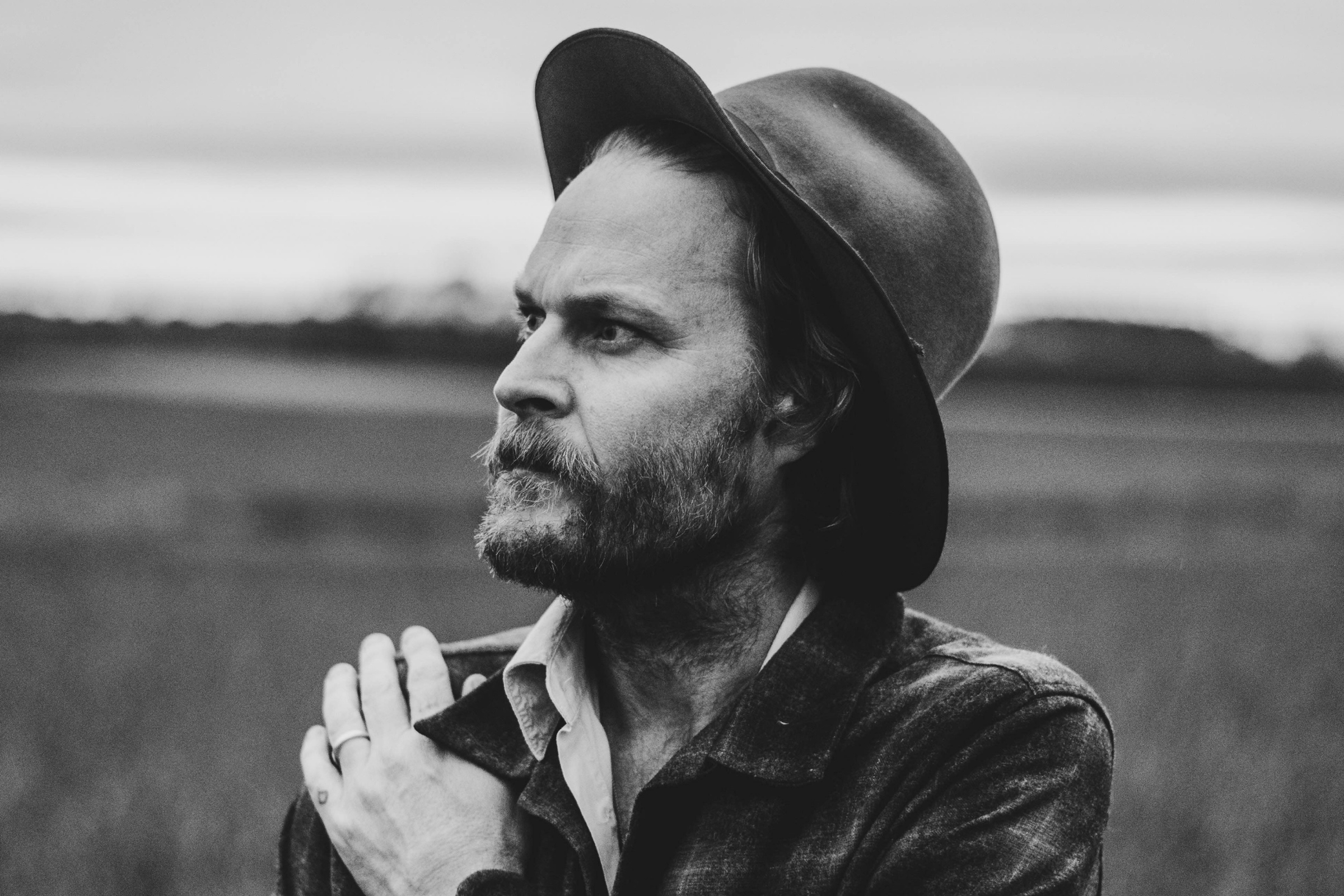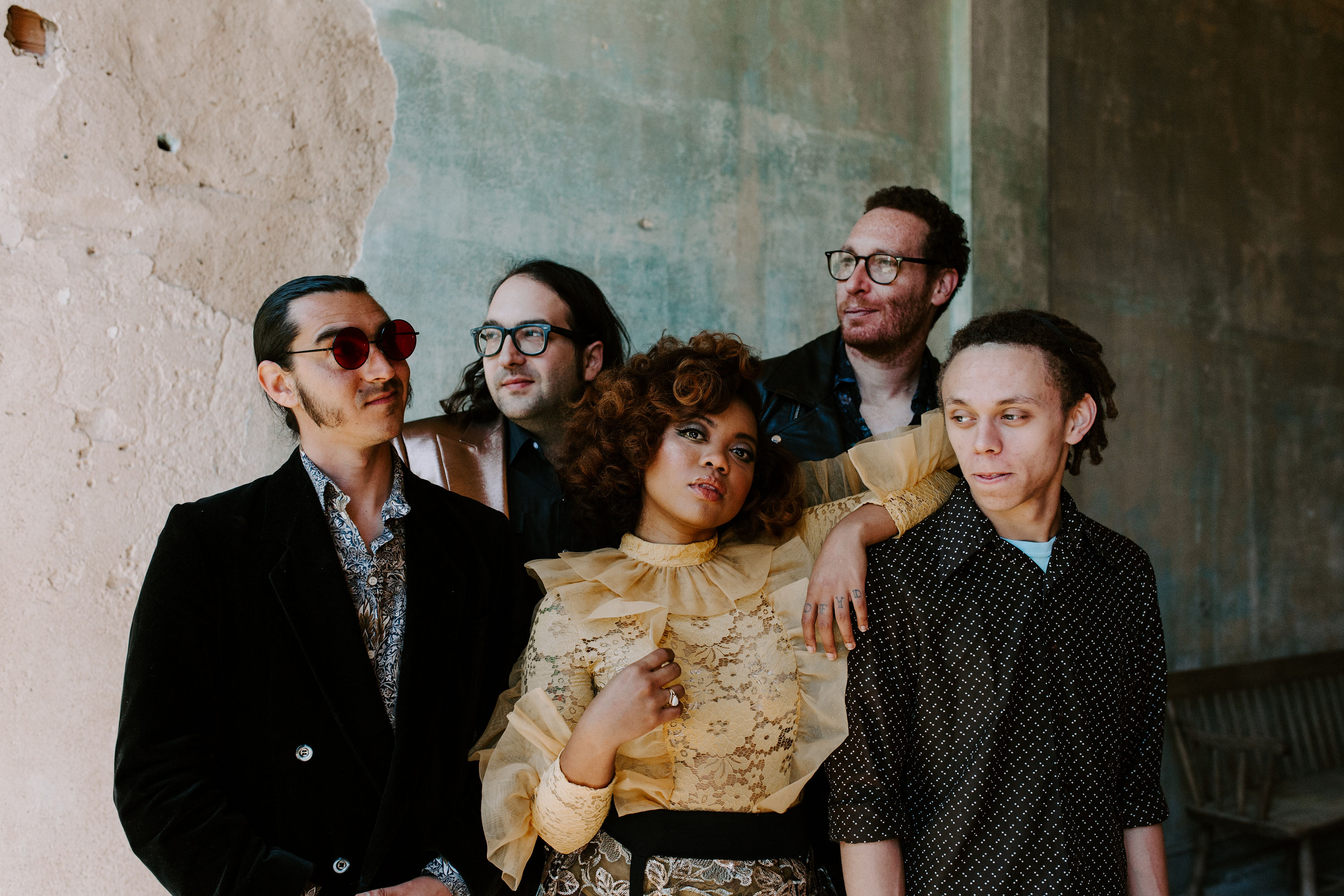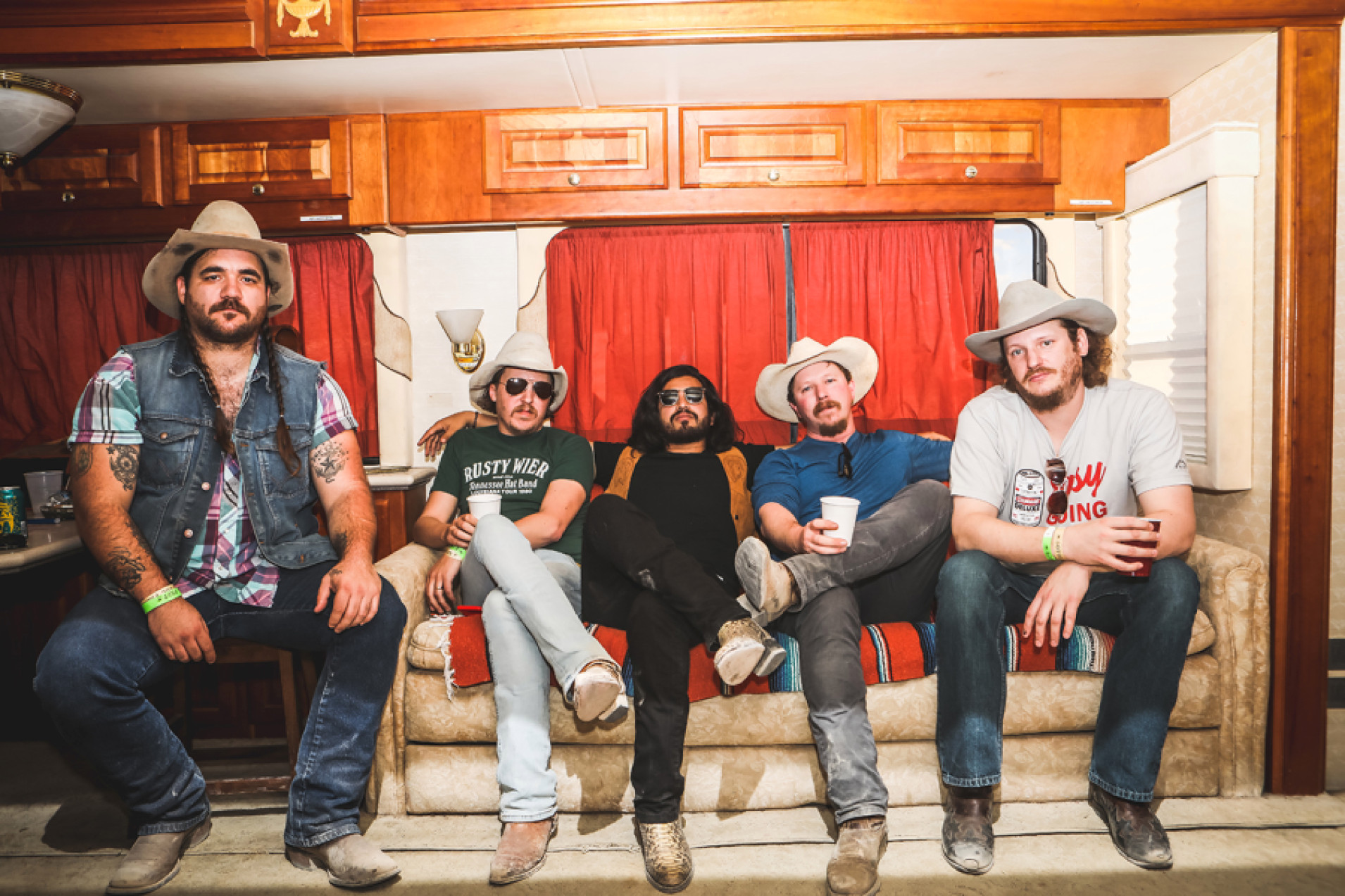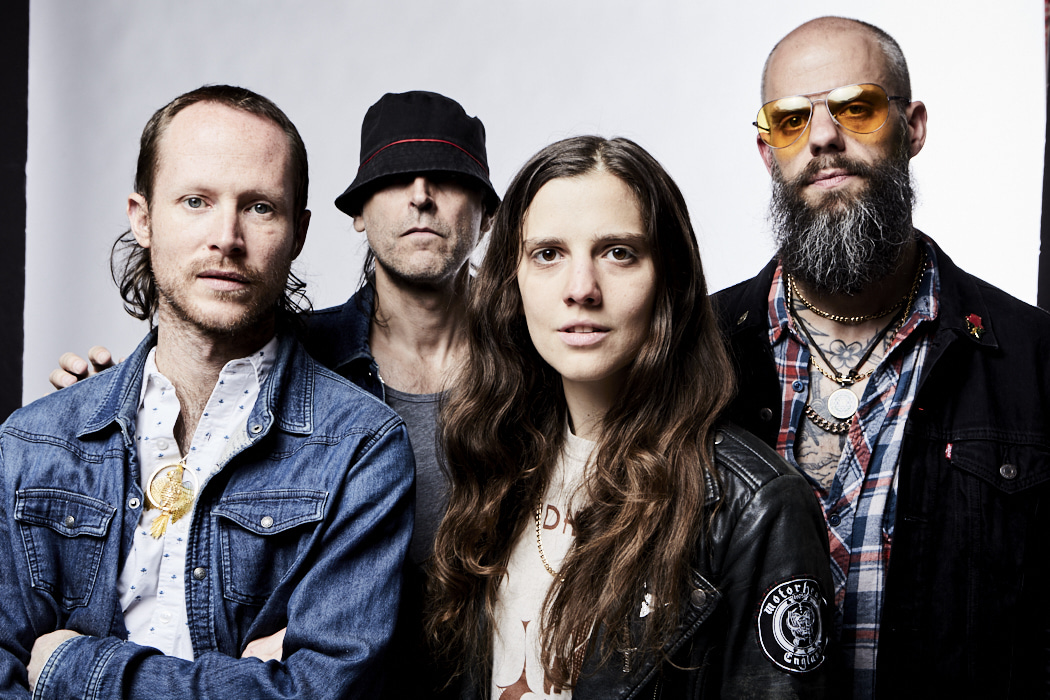No Time Off: A Conversation with the Posies
Ken Stringfellow talks his band’s 30th anniversary tour, being a member of R.E.M., and one late night at Birmingham’s the Nick.
Posies frontman Ken Stringfellow splits his time between Tours, France, and Paris. “You can make all the jokes you want about a guy who comes off the road and goes to a place called ‘Tours,'” he quips.
Stringfellow founded the Posies in 1987 along with fellow songwriter Jon Auer. The group followed the path of one of Stringfellow’s musical heroes, R.E.M. in its left-of-the-dial rock — a path that eventually led R.E.M. guitarist Peter Buck to invite Stringfellow to join the band for a few of its later albums and tours.
The Posies are currently in the middle of a tour celebrating their 30th anniversary, which will bring them to Birmingham’s Saturn Birmingham on Friday, June 8. Before that, Stringfellow and Auer will drop by Seasick Records for a “special electrified duo performance.”
Recently, Stringfellow spoke with Jefferson County Journal about his time with R.E.M., his relationship with the South, and one interesting night at the Nick.
Jefferson County Journal: You stay pretty busy; over the past 30 years, you’ve probably lent your hand to seven or eight albums a year…
Ken Stringfellow: Easily. I personally estimate that my discography as a player, artist, and producer is somewhere in the realm of 250 albums.
Jefferson County Journal: How do you find the time?
Stringfellow: You make the time. I don’t do anything else.
Jefferson County Journal: Do you ever take a day off?
Stringfellow: I try to avoid it. I just work all the time. I do take August off, usually, like the good little Frenchman that I am, and hang out with my family on our idyllic, paradise island home. As a rock star, I’m required to have something like that. So August is my chill month, and pretty much all of my weekends happen there. At Christmastime, I take my daughter to the States and see everybody.
But yeah, other than that, I’m working man. I don’t like to sit around. Maybe I might make a few less records of my own because I do so much production work. But I think it all strengthens my art. Being a producer and going into a studio and doing all of these different tricks, and having to come up with solutions and create something magical and new for somebody else — no holds barred — I think that actually helps my art.
I feel like the last Posies record we did [2016’s Solid States] — musically it’s really strong and the production is really strong. That’s because we can do so much more interesting stuff now. We have so much more knowledge and skill in the studio. And that really strengthens it all. I feel like time off is just a day where I’m not learning jack s—.
Jefferson County Journal: By starting in college radio, the Posies sort of followed the same path as R.E.M. How important was college radio back then?
Stringfellow: College radio was massively important. I have to interject here that R.E.M. was probably one of the most important bands to me growing up. They’re the only band that I ever wrote a fan letter to — to us, when they got to the level of “The One I Love,” it was like, “Wow. They’re huge now. How could they get any bigger?”
And of course we all know that they got 10 times bigger than that. But when they reached Top 40 and went up to playing small arenas and stuff after their fifth album, we thought, “There’s hope. That’s something that we could do, build it brick by brick.”
It went a little differently for us, but that was our model. And we all know that I ended up playing with R.E.M. for 10 years. I was in their band, which still kind of blows my mind.
Jefferson County Journal: What was that like when Peter [Buck] invited you to come play in a band that was so important to you when you were young?
Stringfellow: I played my cards close to my vest, that’s for sure. I just tried not to lose my marbles. It was one of many surreal moments.
There were many serendipities. Nobody deserves anything. No one deserves to be famous. People deserve whatever their mission in life is; trying to find out what that is. But if I had any disappointment about the Posies not achieving the success that many hoped and thought that we would after our early, initial meteoric success in the Northwest, I would say that my life has been well-compensated by getting to do these amazing things that nobody else could say.
Jefferson County Journal: You were also a part of Big Star, which along with R.E.M. is probably among the most important rock bands in the history of the Southeast. How did you become intertwined with that as a kid from the Pacific Northwest? Did you pick up a drawl? Did you pick up a love of barbecue pork?
Stringfellow: [Laughs] Isn’t that funny? You’re right. I don’t come with any of the Southern history, the Southern baggage, the Southern charm. I was very much a suburban white kid from the bubble of the most boring suburbs you could imagine. I guess that says something of the power of a dream. We can reach across those kinds of worlds. I’ve done music in several countries — Africa, Senegal and on and on.
Music is a miracle substance that knows no boundaries and it’s always amazing. You might meet somebody that is culturally very different from you. I may have met somebody that looked like a total metalhead — jean jacket with ripped sleeves over leather and Motörhead patches and neck tattoos — I’ve had people like that come up to me and tell me that the Posies are bad [expletive].
Music and art is what we’re allowed to use to say that we’re actually all in this together. People use it to fence people off; “I only like country music!” or “I only like rap music!” or “I only like rock!” or the reverse — “I hate country music!” or “I hate rap music!”
People say this kind of s—, but that’s because they’re afraid of the consequence of, “What if we were all equal?” That is the story of the human race. What if we were all equal? How frightened would everyone be that are trying to protect their little positions?
Jefferson County Journal: You said that the only letter you ever wrote to a band was to R.E.M. Do you remember what you wrote in the letter?
Stringfellow: Oh, I just wrote some bad poetry that didn’t even make any sense. I was a lonely kid that had no one else to talk to, so music talked to me. And one time, I tried talking back. They did their normal due diligence — sent me stuff to join the fan club and things like that. Which was fine — I’m sort of glad. I asked once, “Do you guys archive your letters?”
“No, I don’t think so.”
“Okay! Good! Good good good good. Let’s just pretend that was never there.”
It’s amusing. It’s the classic bad poetry letter from a teenager. In more recent years, if I’ve ever had lonely teenagers reaching out to me, I know exactly where they’re coming from. I feel all the empathy in the world. A small town isn’t so small anymore with the internet, but it can still be a little isolating. You can find your people on the internet if you’re a weirdo in a small town, but you’ll still be the weirdo in a small town when you get off the internet. So I totally get it. When I left those boring suburbs, we moved to a small town and it was like [expletive].
Just to get R.E.M.’s first record — I heard “Radio Free Europe” on the radio, a station from Seattle that I could pick up from time to time… I spent weeks trying to figure out what this song must have been. I read an article in Rolling Stone about R.E.M. and it mentioned “Radio Free Europe,” and I thought, “I think they were saying ‘Radio Free Europe’ in that song. That’s got to be that band I heard.”
So then I’m left waiting until the record comes to f—g Bellingham, Washington. So months later, after going every f—g day to the record store, [and asking] “You got that R.E.M. record?”… Lo and behold, one f—g day, R.E.M.’s Murmur was on cassette in that shop, and I bought it and got to finally hear that song again. We’re talking probably three months after I heard it on the radio. And of course I just fell in love with it. [It] was a mixture of everything. It wasn’t synthy like new wave. It had guitars. Some of the songs kind of sounded like the Byrds. But it was wonderful that I couldn’t put my finger on exactly what it was.
And there you get the blueprint for the Posies — which, unfortunately for us, maybe hasn’t always worked in our favor, but we don’t really give you an opportunity to say exactly what it is that we are. Sometimes we’re elements of power pop; sometimes we’re folky; sometimes we’re acoustic. We’ve had synthesizer stuff on our records. I think our diversity is our strength, but if you’re looking for an easy thing — “I like metal. I want metal.” or “I like punk. I want punk.” — we will disappoint you, because you’ll just get frustrated waiting for us to settle down. We’re not wired that way.
Jefferson County Journal: What does the current version of the Posies look like?
Stringfellow: It’s great because it’s the old version that’s current. We’ve had a few people come and go over the years; we had kind of a turbulent time in the ‘90s with people having different expectations about what they thought they could get out of this and us not agreeing — a little bit like Oasis. You know, there’s the [Gallagher] brothers—which, basically, Jon [Auer] and I might as well be — then they had some [band members] come and go because it was too wild of a ride for everybody.
I like to compare us more to Steely Dan, who have this nucleus of these two guys. We’ve gotten to have a lot of great players over the years.
With this 30th anniversary thing — because the old record is being reissued — we thought it might be fun and apropos to invite our mid-‘90s lineup from Frosting on the Beater, which is arguably our most popular record. That’s Mike Musburger on the drums and Dave Fox on the bass. We haven’t done a U.S. tour with these guys in 25 years.
Jefferson County Journal: Do you expect this to lead to new music or will you just be celebrating your 30th anniversary?
Stringfellow: That’s a really good question. I think Dave Fox’s involvement will probably be limited because he has a really good job, and I don’t know if the permanent touring life is something that he would relish. He’s happy to do this; it’s fun. He can take some paid leave from his job to do the tour this year, but I don’t see that being a regular habit for him. I don’t think that’s sustainable for him.
We toured two years ago behind Solid States as a three-piece band with a computer playing the bass and synth parts. We toured with the drummer on that record, Frankie Siragusa, who we love playing with, too. Our cup runneth over; we’ve got this great extended family of musicians. I feel like Frankie is kind of where we left off, and the next thing we do, that might be where we want to go.
Jefferson County Journal: It seems like you would be a part of an R.E.M. reunion if it happened. How close do you think we are to that happening?
Stringfellow: Pretty damn far. [Laughs] It’s not that there’s anything acrimonious. I just think that they are people of their word, and if they open that door a little bit, it would be a mess. They would be stuck with obligations that they don’t really need or want. They’ve got enough money to live through their retirement, and they know everybody in the world and they have no shortage of interesting things to do with their days.
I think the regimented side of doing an arena tour — the only motivating factor would be money and they don’t need it. They did it constantly for years. Peter [Buck] loves to go on tour and can’t seem to not go on tour, but Mike [Mills] and Michael [Stipe] are wired a little different. They loved it when it was happening, but I think they are relishing the fact that they can do other things with their lives now.
Jefferson County Journal: There are stories about a show the Posies played at the Nick — maybe a decade ago — that was sparsely attended and the Posies literally played until the sun came up. Do you remember that show?
Stringfellow: Oh, I remember the show, yeah. We played a good, long set.
When we pulled up to The Nick, I’m not going to lie to you, it’s a s—hole. It’s probably one of the worst places we’ve ever played. I’m sorry. It’s a f—g double-wide with black paint on it; it’s not cool. I mean, not if you want to hear good music. Some punky, garagey thing that’s all rattly might sound cool, but if you want something with a little fidelity, that ain’t the place to do it.
But along comes Kristi — there’s this girl on the front row and she’s made a setlist of her [song] requests as a T-shirt. So what are we going to do? We’ve got to play it. Everything. So that’s the story of that show.
She really saved the day because we had hardly anybody there. And I don’t think we really came back after that. I played Bottletree, and we had this crazy thing where we played a night at the museum [Art on the Rocks at Birmingham Museum of Art]. It was this museum garden party where there were hundreds of people. Totally weird, because that previous show, we’d probably had six people at it. I’m hoping for the best for this one. I don’t know how the law of averages are going to work between six and 600. If there’s more than six, we’ll call it a victory.
The Posies come to Saturn on Friday, June 8. Terra Lightfoot opens. Doors are at 8 p.m. and the show begins at 9 p.m. Tickets are $20 in advance and $22 at the door. For more information, visit saturnbirmingham.com.








